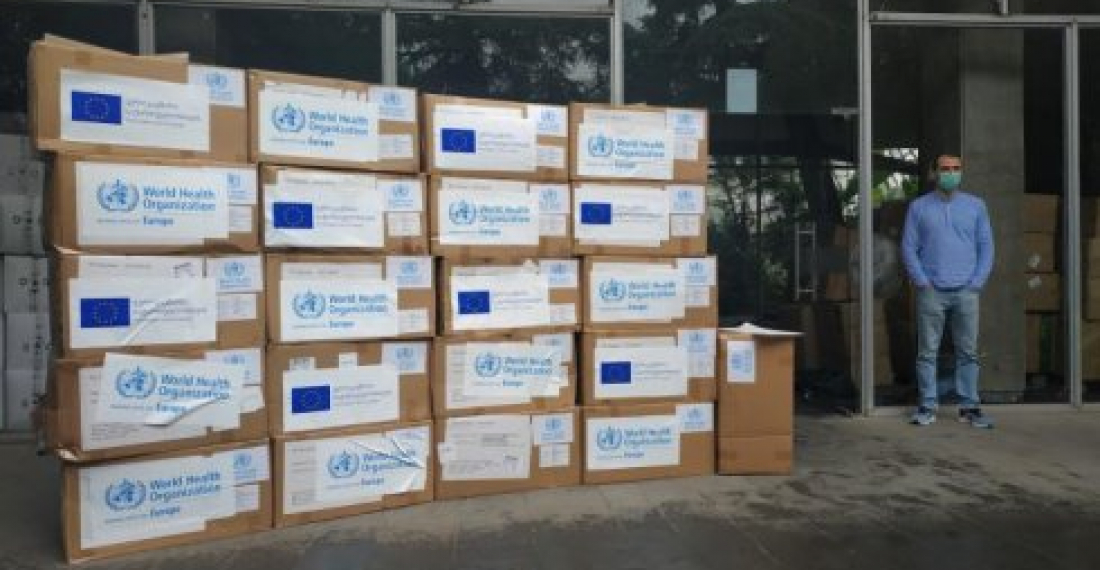The European Union and the World Health Organisation have sent 16,800 goggles and 10,000 medical gowns to Georgia to help in the fight against COVID-19.
The donation of the personal protective equipment with WHO is part of the European Union's response to the outbreak of COVID-19 in Georgia. Further medical based support, implemented with WHO, will include training for health-care workers and frontline responders and a strengthening the health sector's overall preparedness and response capacities.
The assistance is part of a wider package of EU support for Georgia of over €400 million (almost 1.5 billion GEL), which includes support to vulnerable groups and economic recovery.
Georgia has reported 578 new cases of the coronavirus and 375 recoveries in the past 24 hours which is record high since the pandemic outbreak.
source: commonspace.eu with agencies







